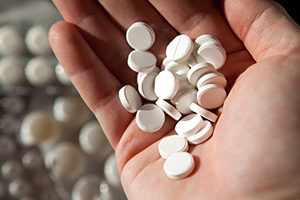What Makes the Medicine Go Down? (Hint: It’s Not a Spoonful of Sugar)

Seems like we lived in a world not too long ago where we could trust the medicines we were prescribed, the over-the-counter drugs we purchased, the information and prescriptions we received from our doctors, no questions asked. It was a world where we referred to our doctor by first name, where everyone in the family went to the same doctor, for years, where medicines for headaches and tummy aches came from trusted, family-owned shops just the next town away. It was a world, even, where we thought we could trust the brands we purchased, because it was the brands’ real mission to look after our health needs. Maybe this ideal world never truly existed, but we sure thought it did. Quite simply, it was a world where Mary Poppins was real.
With Mary Poppins we learned that it was our job, as everyday people, to be on the other end of the medicinal and health care sticks. While doctors knew what was best for us, we knew what we wanted – to not take the icky medicines! – and it was an endless battle between doing what we were supposed to do and doing what we wanted to do. We thought that, with adulthood, came the giving in to what was best for us. We would listen to Mary Poppins, chase our icky medicines with a spoonful of sugar, and our health needs would be met, because we did what the doctors knew what was in our best interest.
We’re all adults here. We all listened to our doctors. But some of the prescription drugs we took made us sick, sometimes fatally so. So what went wrong?
Mary Poppins forgot to teach us one important lesson: think before you swallow; don’t just do what you are told – take some personal responsibility for your own health, too.
The truth is doctors often see hundreds of patients and have to be aware of thousands of medicines used to treat the various ailments of all of their patients. You, on the other hand, have your own person to look after, maybe your family members or loved ones as well. We’re not saying that you should become your own doctor or your own test subject, far from it. But you know you – it’s pretty simple. So why do we assume that we are not capable of understanding our own health needs, too?
Consider this: one of the world’s best-selling diabetes drugs, Actos, increases the risk of bladder cancer in patients by 40 percent after a year of use compared to other diabetic drugs. And while the FDA issued warnings to doctors and patients that Actos should not be prescribed to patients who have had bladder cancer, or who are at an increased risk for bladder cancer, doctors continued to prescribe Actos. And many patients swallowed the pills, thinking that they were doing what was best for their health, only later discovering that their increased risk for bladder cancer had turned into a fatal cancer. We can’t blame our doctors because oftentimes doctors do not know about all of the latest updates in drug safety and risks – drug manufacturers are keen to hide such information to maintain profits – and, even when the information is readily available, why wait until your doctor happens to learn about it? Why not learn the information yourself, by researching online and asking questions to your doctor, before you say "yes" to whatever your doctor suggests as a form of treatment?
When you see a new doctor and hear their idea of treatment, it is common to say: "thank you, I will get a second opinion first." We propose an additional statement: "thank you, let me get a third opinion." The third opinion comes from you. It involves finding the information when it is available to you online, such as on the FDA’s website or on websites dedicated to tracking certain drug’s safety standards and health implications, sometimes even on websites dedicated to pooling resources for your own individual ailment. Stake out some time to dig into researching the latest treatment or pill, and make sure that your sources are reliable. Look for third-party studies, undertaken for the longest amount of time, and remember that if the information’s source comes directly from the drug manufacturer, it is probably best to keep looking.
At Baron and Budd we think that the third opinion is what being an adult is all about – staking a spot out in the field to look after your own health, because you really are capable of doing more than swallowing some sugar pills – or worse!
